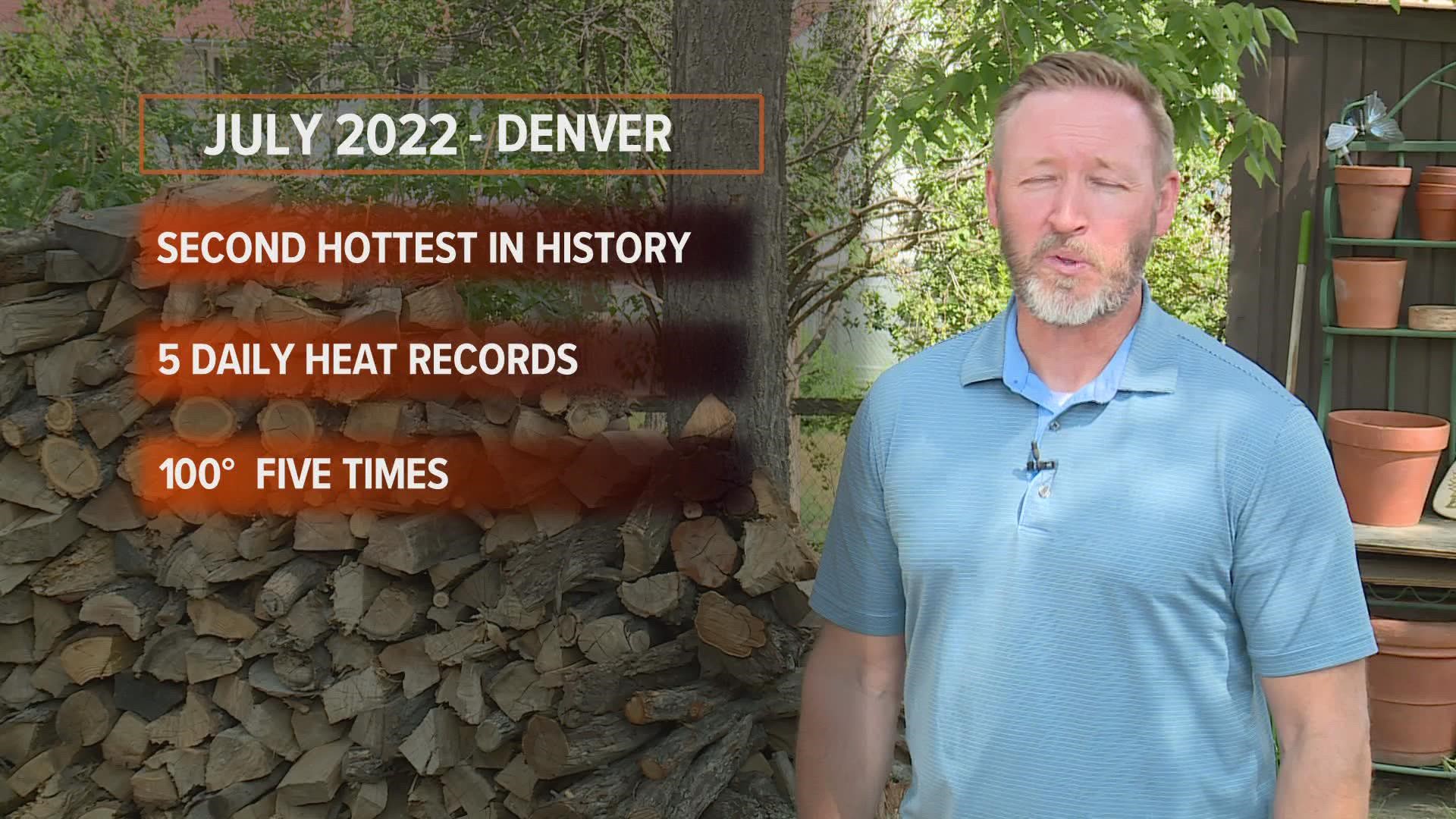DENVER — July 2022 was the second hottest July ever recorded at Denver International Airport, with an average temperature of 78.0 degrees.
DIA happens to be the official climate station for the city of Denver. It gets a lot of criticism from citizens and local meteorologists because it doesn't seem to often represent the weather for the rest of the city on a given day, but the average temperature and the average precipitation are not too different from the other official weather station in Denver at Central Park.
The weather around the Denver area can be drastically different in many areas at the same time, so there really isn't a perfect place to represent the entire city anyway.
DIA has also been the official climate station for 28 years now, so that's plenty of time to establish a worthy comparison of its history, although typically, climatologists prefer a weather station to have at least 30 years of data.
Also this July at DIA, five daily heat records were set (two maximums and three warm minimums). And it hit 100 degrees three times, tying for second most.
This July was warmer than average across the entire state.
Denver Central Park was nowhere near as hot as DIA, but still ranked as the eighth-warmest July.
Castle Rock finished with a staggering 79-degree average, which is the hottest July in its history. Castle Rock also recorded the highest maximum temperature of all time there, with 102 degrees on July 11.
All the temperatures listed below were well above average.

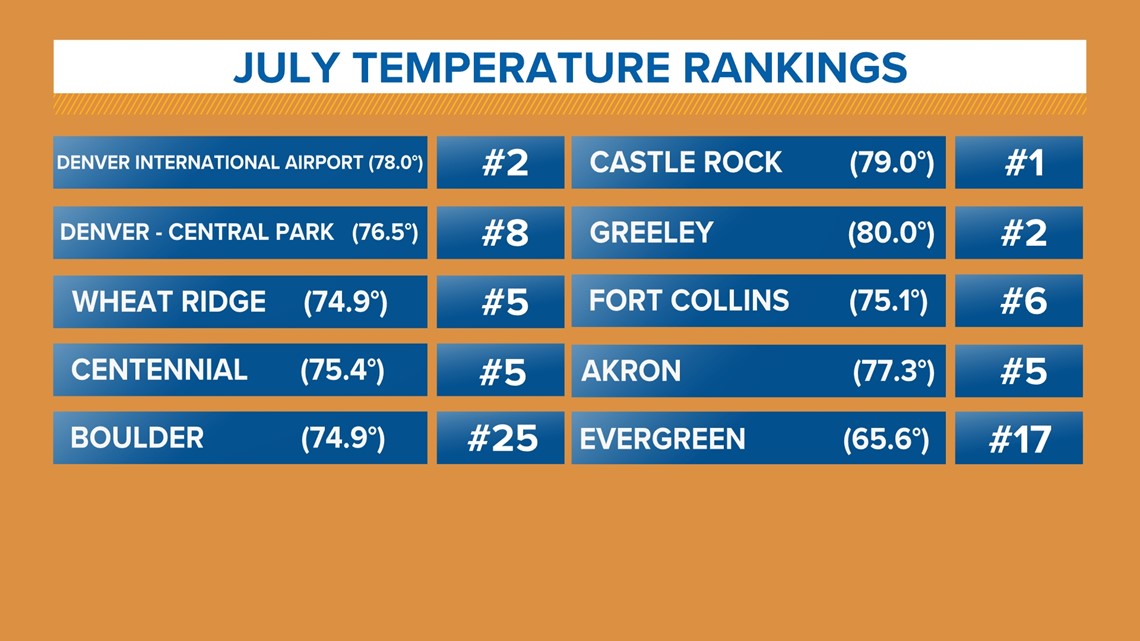

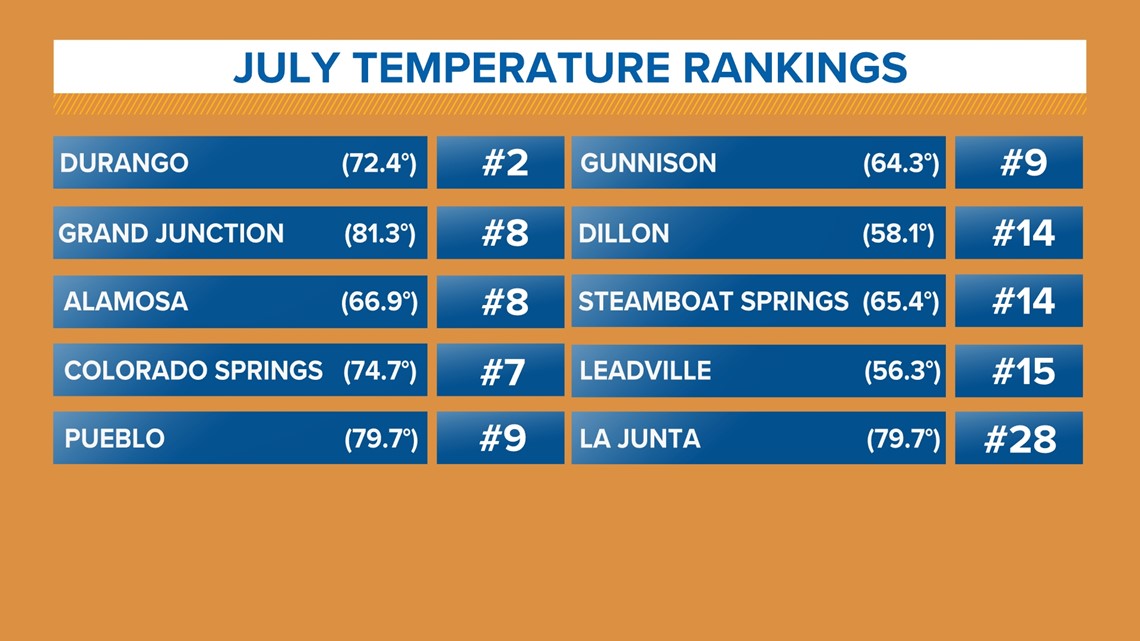
Despite the high temperatures across the state, some people might say it didn't feel quite as hot as the temperatures indicate. That's because there was frequent afternoon cloud cover this July, thanks to an active monsoon.
So instead of the extreme temperatures lasting deep into the afternoon, it often cooled off a little bit right after the high temperature was reached.
These average temperatures were also greatly impacted by warm morning lows, which were well above normal across Colorado this July. The average is simply adding the high and the low together and dividing by two.
Precipitation
Precipitation was hit and miss this July -- also a result of the active monsoon.
Many of the areas that got below-average precipitation were right in the Denver metro area, especially the northeast section where DIA, Central Park and Brighton came up way short of average.
Central Park has now had below-average precipitation for 21 consecutive summer months. June 2015 was the last time there was above-average precipitation there.
Summer thunderstorms are very small, so you really have to get lucky a few times to get up above the average, but 21 consecutive months is a bit ridiculous. DIA is only a few miles away, and it's only been nine summer months since that location has had above-average precipitation.
Same thing with Holyoke getting left out this July while nearby Akron and Yuma got hit hard several times.
Boulder did get above-average precipitation with 2.44 inches of rain, but it only ranks as the 36th-wettest July. That climate record goes back to 1894.

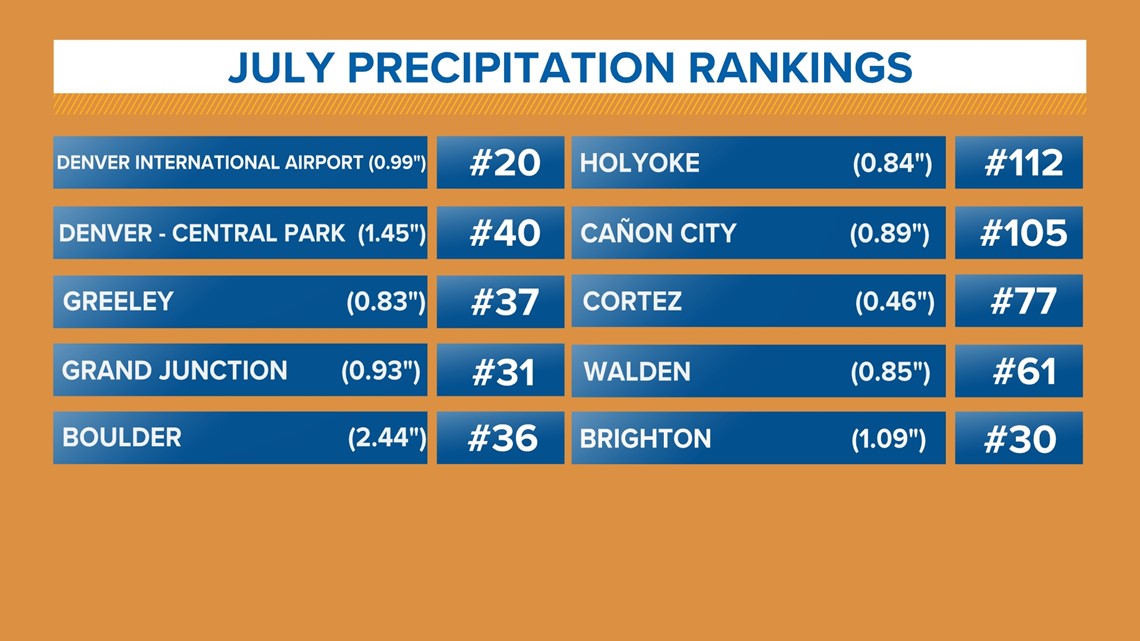
Colorado Springs and Kit Carson nearly broke monthy precipitation records, while Evergreen and Durango got good rain, ranking in the top five all-time.

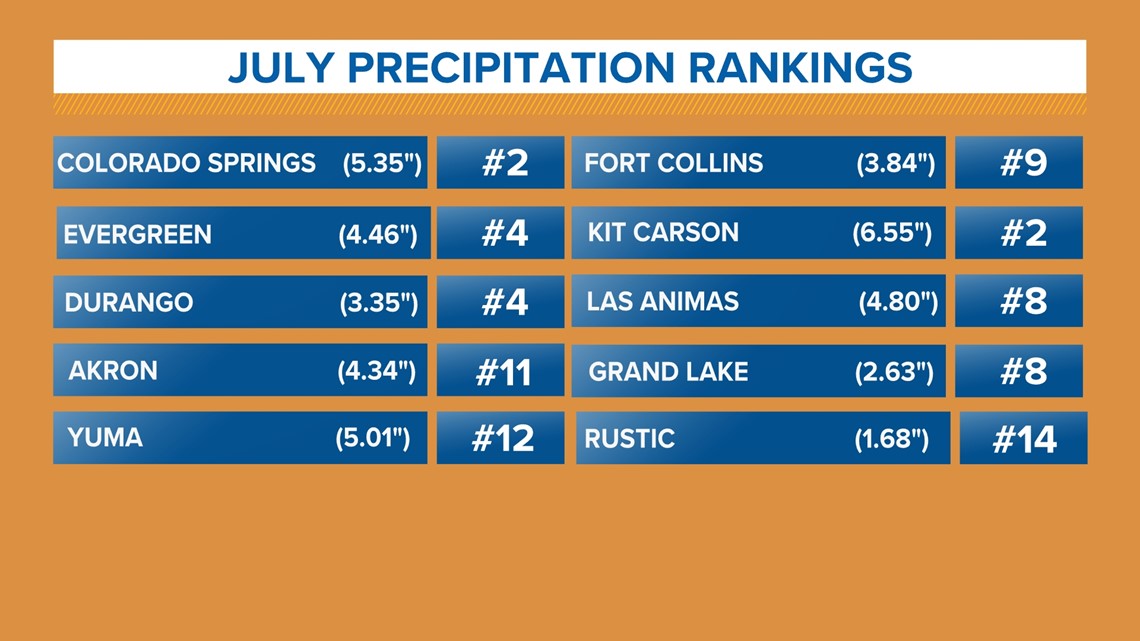
SUGGESTED VIDEOS: Colorado Climate
MORE WAYS TO GET 9NEWS
Subscribe to our daily 9NEWSLETTER
Download the 9NEWS APP
iTunes: http://on9news.tv/itunes
Google Play: http://on9news.tv/1lWnC5n
HOW TO ADD THE 9NEWS APP TO YOUR STREAMING DEVICE
ROKU: add the channel from the ROKU store or by searching for KUSA.
For both Apple TV and Fire TV, search for "9news" to find the free app to add to your account. Another option for Fire TV is to have the app delivered directly to your Fire TV through Amazon.

